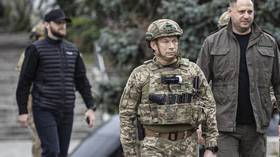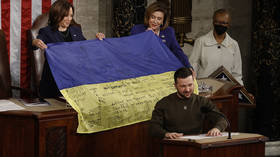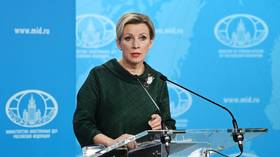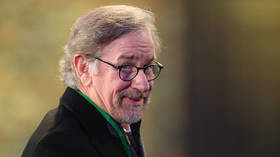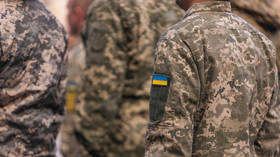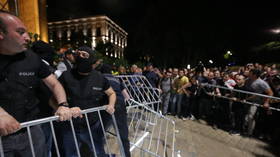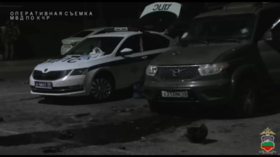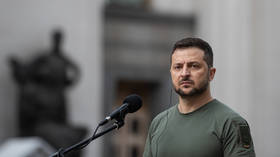“Many were shot dead. But you had to march on” - WWII veteran
RT presents War Witness – a special project dedicated to the 65th anniversary of the victory in the Second World War.
World War II veterans recount their stories about the war, its effects and its human perspective.
Moritz Mebel, who served as a lieutenant in the 130th infantry division of the Soviet Army, recalls how his regiment took over a village.
“We got the order to march on and to capture the village Pavlovo. That was bad. That was actually really bad. The regiment that captured that village before us was kicked out again by the Nazi Wehrmacht and we received the order to take it back. There was deep snow everywhere. And you run in the snow, and you cry: Hooray! But it wasn’t really running. You were just stamping in that snow. Suddenly many fell. They were shot dead or they were wounded. But you couldn’t pay attention to this. You had to march on. You had to fight your way through.”
The veteran remembers the moment when he realized that they had taken the village. The sight left after the Nazis had retreated was shocking.
“Suddenly it got very quiet. The village Pavlovo was ours. We captured it, well, the ruins that remained there. The fascists set it on fire before they retreated. The dead bodies. You couldn’t really bury them because the ground was completely frozen. We just piled up the dead bodies. I can remember it very well. In the bunker we found the commander of the regiment that was fighting there before we came. He was sitting there leaning on the wall. As we found out later he had been severely injured and taken refuge in that shed. And before the fascists left the village, they set his hands on fire. So he was sitting there. He was dead, of course, but his hands were badly burnt. Things like that you never forget.”
Maria Galyshkina was a sniper in the Soviet Army.
“We practiced at our rifle range with air rifles and I was one of two hundred young women from the Caucasus who were drafted in for sniper’s school training,” Galyshkina recalls. “After an eight-month course we went through the steppes, the marshlands and the rice paddies of Kuban to the Cossack village of Kurchanskaya. And one day we were walking with my partner, Anya Sokolova, when we stopped in a swamp. There were a lot of reeds from which we made tents and hid inside.”
“Later our scouts came and said – why are you sitting here in the swamp when there is a house over there? Look, there is a barn,” Maria remembers. “We looked up and saw a few motors and machine guns, and a couple of guards close by. The company commander said – we attack in the morning.”
On March 3, in the dark, they attacked.
“They put up nineteen machine guns from under the bank of the Kurka River and gunned down all our attackers. Whoever was still alive was finished now with daggers and rifles, while Anya, wounded, was taken prisoner. She was mutilated. One half of her face was cut off. And, of course, she was raped. And she was shot in the heart.”
The tragedy shocked Maria, but she did not back down.
“Of course, I wept. It hurt a lot. I said – well, where is my rifle? But our commander said – wait, there are a lot of them out there, and we have almost no weapons. They’ll fire just one mine and we’ll be all dead. Wait! I said – ok, I’ll wait.”
So, she waited for one day, and then the next, until Maria finally lost her patience and decided to deal with the enemies herself.
“I took a soldier with me because a sniper cannot operate alone. I looked and saw a small knoll so I hit behind it. A German soldier came and said – hey, Russian, come on, exercise! – and began squatting. I thought – wait, I’m going to give you something. He took off his pants and squatted. And – bang! I shot him. He began wailing. A sniper’s shot is a special thing. It’s not like a shot from an ordinary rifle. At that moment four more Germans came running and I killed all five of them. I said – I’m going to reload. I have more bullets in the magazine. But my companion pulled me back by my leg, saying: Let’s get out of here; there will be a mess here now. And as soon as we got back to our company commander – boom. A mine fell where we were just a minute ago.”


